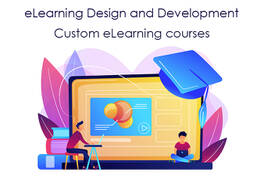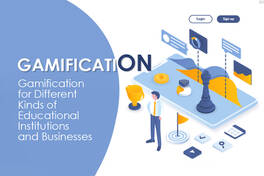
In a nutshell, instructional design is about the art of creating valuable learning experiences. The latter is particularly relevant to the e-learning context.
Recently, instructional design has become more than a passing fad. As a result of COVID-19 pandemic, 2020 witnessed an unseen digital transformation in education which boosted e-learning beyond expectations. Against the background of increased e-learning offerings, customer requirements now call for genuinely qualitative and efficient online courses.
And it is exactly here where instructional design comes to play. Thanks to recent developments, the profession of instructional designers has become one of the hottest jobs on the higher education market.
What is an instructional designer?
An Instructional Designer works hand in hand with Subject Matter Experts in planning, designing, and delivering online courses. While Subject Matter Experts specialize in the specific field of training, Instructional Designers are responsible for all other components that make a quality online course.
An Instructional Designer combines a specific skillset of pedagogical, design, and technological skills to offer a premium online learning experience. Although he may come from a variety of backgrounds, his functions are interdisciplinary.
The role of an Instructional Designer in e-learning design is as diverse that it may cover:
• planning and analyzing online courses format based on learning needs assessment;
• designing a study curriculum;
• proposing relevant technology to satisfy learning goals;
• designing a structure of learning content to ensure an effective learning process with a high level of learners’ engagement;
• taking care of the interactive elements of an online course – quizzes, tests, and other collaborative features to ensure the best learning efficiency;
• performing multimedia design to guarantee a smooth learning experience;
• conducting quality assurance (QA) before the launch of online courses;
• cooperating with other course stakeholders to guarantee optimum e-learning delivery;
• assessing the attainment of course goals.
To facilitate benchmarking among professional standards, the IBSPI (International Board of Standards for Training, Performance, and Instruction) has set down requirements for the profession. They help to frame both expectations and demands for a role as challenging as the role of an instructional designer.
What are the key benefits of instructional design in e-learning course creation?
As one can see with a naked eye, the role of an instructional designer is so multidimensional that its value-added to a trainers’ team is certain. Nevertheless, a more analytical approach to resolving the question of why we need an instructional designer can bring further insights.
We have summarized seven key benefits of instructional design:
1. Focus on learners – including professional instructional design will let you improve your user orientation. It will further guarantee that your training is tailored to the needs of your specific group of learners.
2. Attention to details – an instructional designer is prepared to perform the QA of your online courses so that to transform them into final products. This will ensure that your materials are impeccable.
3. Interdisciplinary e-learning knowledge – probably one of the most valuable competencies of an instructional designer is his methodological know-how as to how to present the study material to a learning audience in the online medium.
4. Creative approach to the learning experience – hiring an instructional designer will equip your e-learning team with creative expertise for a higher learning efficiency.
5. Technology is aligned with learning goals – there is no better expert than an instructional designer when it comes to taking full advantage of selected e-learning technology to attain your learning goals.
6. Stakeholder inclusion – an instructional designer will make sure your e-learning product is properly consulted with all interested parties.
7. Analysis of learning outcomes – you can measure e-learning success only by assessing outcomes, which is something an instructional designer is proficient at.
Other reasons for hiring an instructional designer for your e-learning project may also depend on your specific needs. Should you have any questions on how to approach the issue, do not hesitate to contact us.
Instructional Design Frameworks
To design a truly effective online course, you naturally need a proper approach. If you are considering an e-learning project for the first time, you are welcome to introduce yourself to its typical stages here.
Instructional Design is backed up with sound theory, on which we will be updating you shortly. Should you need to learn more, please browse further resources here.
Key Takeaways
Instructional design is a topical trend facilitating first-class e-learning experiences. Using an instructional designer can bring unrivaled benefits to your e-course design, delivery, and assessment.
If you are interested in how your e-learning project idea may benefit from instructional design, you are more than welcome to contact us.







